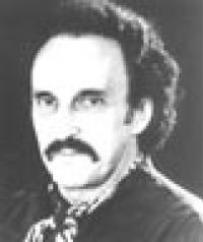The Planning Report hosted a luncheon session on February 14. The panel, including Councilman Michael Woo and Alan Kreditor, Dean of USC's School of Urban and Regional Planning, responded to former Director Ken Topping's suggestion of the next Director of the Los Angeles City Planning Department. The panel focused on two major questions: the state of the Planning Department and the necessary characterisitcs of the next Planning Director. Leon Whiteson, an architecture critic for the Los Angeles Times and a contributing editor of The Planning Report, gathers the responses here.

"As planning has gained increasing legal authority, it has lost moral authority," said Alan Kreditor. "We desperately need a moral dimension to planning, a sense of what king of city we all aspire to."
Do we need a Wizard of Oz to head the Los Angeles City Planning Department, as former Director Ken Topping suggested in the February issue of The Planning Report? Or are we merely looking for a superb manager/administrator with excellent diplomatic skills, a dogged yet utterly charming personality, and a visionary’s insight into the future of our fragmented, fascinating and faulted city?
Such questions were pondered by a distinguished panel on February 14, in the first in a series of three luncheons hosted by The Planning Report at the Los Angeles Athletic Club. In answer, the panel, which included Acting Planning Director Melanie Fallon, Councilman Michael Woo, Jane Blumenfeld, Mayor Bradley’s planning advisor, Alan Kreditor, Dean of USC’s School of Urban and Regional Planning, and consultant Larry Kosmont, presented a spectrum of comments and suggestions.
At the urging of The Planning Report’s Publisher, David Abel, the panel responded to Topping’s published comments on the condition of the Planning Department and the character of its next “chief wizard.” Backing Topping’s assertion that the Department had achieved more “real planning” than many of its detractors acknowledged, Fallon pointed to such successes as the innovative Central City West Specific Plan, the sewer permit allocation ordinance and the ongoing Community Plan revisions. “Part of our problem is that we failed to get the word out,” Fallon said, “and part is that the city needs to think dramatically about its options and opportunities.”
Woo was frank about “the fractious nature of city government” that has so far failed to respond adequately to a rising level of public dissatisfaction. “The Mayor and the Council are the problem, not the Planning Department,” he said bluntly. “We lack consensus on the issues, and so we make too many conflicting demands on the planning staff.” Despite such perceptions, Woo still hankered for a Director who was “a combination of a visionary and an administrator.”
“We live in a land of make believe,” Blumenfeld declared, “with no idea of what we, as a city, are trying to accomplish.” Like all the panelists, Blumenfeld decried the lack of political leadership needed to make the hard choices Los Angeles must implement in the coming decade.
Kosmont described the Department as “trying to be competent in a confused situation,” and suggested a radical departmental restructuring with a clear hierarchy of priorities, to emphasize such vital issues as establishing an “honest dialogue” with all fifteen councilmembers, better collaboration with other city departments involved in the planning process, and a shift of focus towards a continuity in project management.
Kreditor fretted that efficient management could become a substitute for leadership. “As planning has gained increasing legal authority, it has lost moral authority,” he said. “We desperately need a moral dimension to planning, a sense of what kind of city we all aspire to.”
A “moral dimension” would have come from the grassroots, Woo suggested, but he feared there simply was no public constituency for “vision.” “Right now, nobody on the Council or within the Mayor’s office really wants a strong Director with a vision and the moxie to implement it,” he said. “I’d like to have a Director with both professional planning expertise and guts, but it’s unlikely such a person would get appointed.”
But Kreditor wondered if a candidate of such outstanding caliber would even apply for a job that could destroy his reputation, and Kosmont questioned whether the City’s Personnel Manager had the competence to conduct a national search that might attract first-rate applicants.
The audience’s comments ranged from a concern about the independence of the new Director from political influence to the pressing need for the Department to speed up its approvals process. Others asked if the City could or should cede some of its planning authority to the cause of regional cooperation in Southern California. Yet others wondered why the Department did not call upon such local institutions as universities and think tanks to supplement its resources.
At the heart of the matter, many agreed, was the lack of any idea or consensus about what kind of city Los Angeles should be in the future. In the absence of such consensus, we are faced with a series of largely ad hoc and reactive strategies buffeted by the winds of influence.
Summing up, former Deputy Director Kei Uyeda said that the new Wizard would need a “tough hide.” “Being Director is a tougher job than Chief Gates’,” he said dryly. “If Topping had a fault, he was too sensitive to criticism, which paralyzed his effectiveness. All in all, I’m not optimistic about finding a Director of quality.”
O’Malley Miller, the second summarizer, agreed with this assessment. “It’s a dismal picture,” he said. “All we can say, listening to the comments today, is that, on the issue of the problems facing a potential Director, everyone is in heated agreement.”
- Log in to post comments



